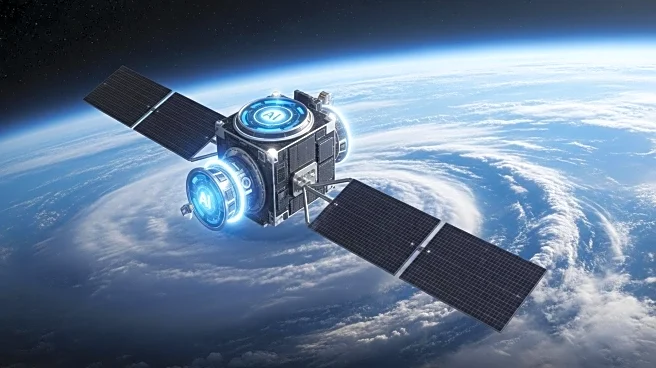What is the story about?
What's Happening?
NASA has selected Planette, a company specializing in long-range weather prediction technology, to develop QubitCast, an advanced forecasting system powered by artificial intelligence. This system aims to improve subseasonal-to-seasonal weather predictions, focusing on extreme weather detection capabilities. Unlike traditional weather models limited to short-term forecasts, QubitCast uses AI and quantum-inspired algorithms to extend predictions up to one year, providing critical early warnings for severe weather events. The technology combines atmospheric, ocean, and land data to fill the gap between short-term weather forecasts and long-term climate projections.
Why It's Important?
The development of QubitCast is significant as it addresses the limitations of current weather forecasting technologies, which often struggle with predicting extreme weather events. By providing more accurate and timely forecasts, this system can help various sectors, including agriculture, emergency management, and energy, to plan and prepare for severe weather conditions. The ability to predict weather patterns more efficiently and accurately can lead to better resource management and risk mitigation, ultimately reducing the impact of extreme weather on society and the economy.
What's Next?
Planette's collaboration with NASA through the Small Business Innovation Research program marks a step forward in advancing weather intelligence technology. The company plans to continue developing its AI models and expand its forecasting capabilities. As QubitCast becomes more widely adopted, it is expected to enhance decision-making processes across industries that rely on weather predictions. The ongoing support from NASA and other agencies will likely drive further innovations in weather forecasting technology.
Beyond the Headlines
The use of quantum-inspired algorithms in weather prediction represents a shift towards more energy-efficient and computationally effective models. This approach not only improves forecast accuracy but also reduces the environmental impact of large-scale data processing. As AI continues to evolve, its application in weather forecasting could lead to broader implications for climate science and environmental policy.















